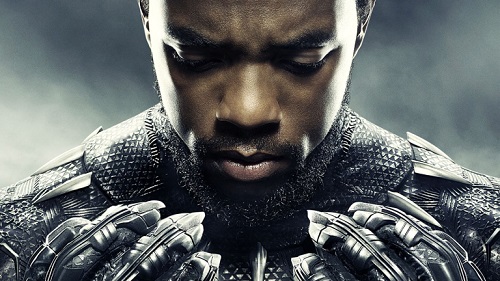The Legacy and the Lessons of Black Panther
Black Panther, in just two years, has managed to become one of the most loved fictional characters worldwide. For people who are mourning the loss of Chadwick Boseman, it does bring them some consolation as they can witness the late actor give one of the best performances of his life. But the film has had a far-reaching cultural impact and has become more than just a superhero movie. With the current social upheaval in western countries started with the hope for a world with less hate and inequality, it is worth revisiting Black Panther to draw the lessons that the movie taught us.

Even before the cameras rolled, the movie had already done something extraordinary. Black Children now had a superhero to look up to, and it was the brilliance of Chadwick Boseman that inspired them. T’Challa was played beautifully by him, and words won’t suffice to truly explain the gravity of his role in the light of current social unrest. The long journey of meaningful representation did not stop there; the cast and crew of the blockbuster movie were overwhelmingly Black and female. It is tough to recall any other film that did as well Black Panther for righting the past wrongs.
It is a common problem with Hollywood that the people who often live the stories that play out in theatres, don’t really get to tell them. Representation in Black Panther gave it the acceptability and authenticity that most movies would otherwise lack. Even the actors were motivated and enabled to play their parts with range and dignity because of that, which is refreshing. The diversity of characters in the movie also meant that it appealed to and resonated with a much larger audience. Although it was revolutionary in itself that we saw characters of varied skin color and gender, those characters contained much more abundance within and among them, which is mind boggling even to comprehend.
For decades now, black and female characters were often given little chance to represent themselves with dignity. They were often downgraded to little more than stereotypes which is appalling. Even Boseman himself lost a lucrative role when he complained about the characterization of the role offered to him. But one must not forget that there was a world populated with people who have competing worldviews. This became obvious in the conflict between T’Challa and Erik Killmonger in the movie, but that is where the eternal wisdom of Black Panther comes to the rescue.
Erik Killmonger, the character played by Michael B. Jordan was impactful because of the selfless presence of the T’Challa played by Boseman. Both characters complimented each other well. At the beginning of the movie, T’Challa was much more just and well-intentioned ruler who would seek guidance whenever possible. He was less interested in wielding power and more interested in doing the right thing for the people. But Leadership is a multi-faceted responsibility, and the vision of the leader matters just as much as the values. T’Challa fell short for his people only when he pursued his policies of isolation. He didn’t empathize with his allies who needed help because he prioritized the protection of Wakanda.
Killmonger, on the other hand, was fighting a war to get back what was taken from his people. He was the sort of charismatic leader who can easily inspire others to fight by his side for his cause. But soon enough it becomes apparent that his methods were questionable and sinister. But his resolve was firm, and he was justified to be angry about the death of his father. His beliefs about intervention and suffering are also right. His pursuit of power through appropriate channels differentiated him from other villains who might seek any means necessary to get what they want. The movie does something exceptional when it questions the morality of the protagonist and puts the audience in a conundrum that demands introspection.
Killmonger challenges both T’Challa and the audience to pause and rethink. The movie does not end after a final battle resolves the conflict. But surprisingly enough it happens when T’Challa condescends to the antagonist’s point of view. Unlike other superheroes, he did not win by killing or defeating his adversary using his fighting prowess but instead by his humility, grace and compassion. It is rare to see the protagonist of a superhero movie introspect and admit that he was wrong. T’Challa not only did that, but he even looked back at the actions of his ancestors and admitted that they wronged many. Boseman did a brilliant job of communicating this side of heroism to the audience, which rarely happens.
After the death of Chadwick Boseman, Black Panther is being watched by millions around the world in his memory. It will help if the audience does understand and recognize the underlying message of the movie. With a little humility, compassion and grace like T’Challa, there is a good possibility that the world might finally find a way to reconciliation and peace.
Cherry Watson is a creative person who has been writing blogs and articles about cyber security. He writes about the latest updates regarding McAfee.com/activate and how it can improve the work experience of users. His articles have been published in many popular e-magazines, blogs and websites.
Source:- https://askmeyp.com/the-legacy-and-the-lessons-of-black-panther/